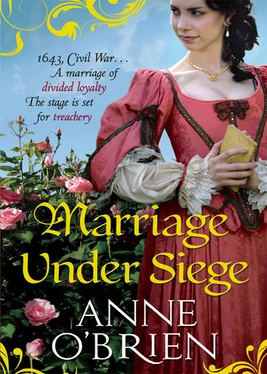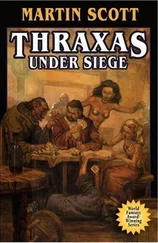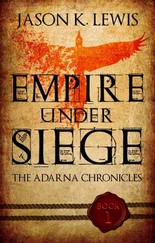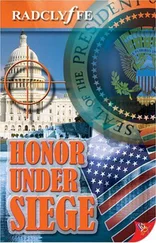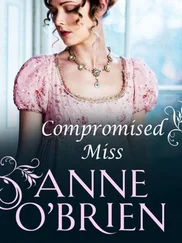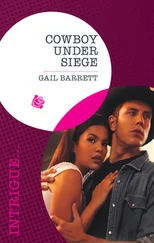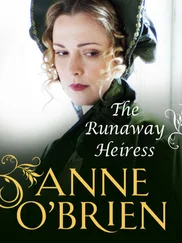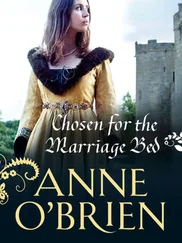The widow raised her eyes to his as he halted before her. ‘I trust that the arrangements were to your liking, my lord?’
‘Excellent—in the circumstances.’ His smile of thanks warmed his features. ‘I understand from Foxton that I have you to thank for the arrangements—and the spread of food. I have to admit that I had not given it much thought.’
‘How should you? Men rarely do. You merely expect it to be done.’
Mansell raised his brows, the smile fading, at the quick response. Had she intended such needle-sharp judgement? He could detect no malice in the lady’s face. Nothing except for a soul-crushing weariness that she could not disguise. He chose to control his instinctive reaction and bit down on a curt reply.
‘I could have no complaint, and nor could our guests, my lady. Unless it was the length of time it took the Reverend Gower to bury my late unlamented cousin.’
As on the previous evening, it crossed his mind that perhaps that was not the most tactful of comments to make to Edward’s widow, but she accepted the criticism of her lord with her usual lack of response. No touch of humour. No smile. Merely a frigid acceptance.
‘I believe that your family connection with Lord Edward is somewhat distant, my lord?’
‘Indeed.’ Mansell moved closer to the fire. ‘Some three generations back, I believe. My great-grandfather was brother to Edward’s great-grandfather, which makes us … well, second or third cousins, I suppose. And I had no expectation of this inheritance, of course.’
‘I heard about your brother’s recent death, my lord. And that of your wife and son. I am sorry for your tragic loss. It must be very hard to accept it.’ He heard a note of true regret in her voice. Even as he mentally withdrew from further expressions of sympathy—had he not suffered enough for one day?—he saw a shiver run through her so that he surprised himself and her by reaching out to cover her clasped hands with his own. And he kept the contact even when the wolfhound showed her teeth in silent warning.
Her hands were icy.
‘You are frozen, my lady. This is no place for you.’
Honoria choked back the sudden threat of tears at such an unexpected expression of consideration, silently horrified at how little it took to disturb her.
‘It is no matter,’ she answered in a low voice. ‘I will see to the clearing of the repast now. I will talk to Master Foxton and Mistress Morgan.’
‘You will not.’ Sir Francis turned her hands within his own, aware of the soft skin and slender fingers. Such small hands to be burdened with such responsibility. He snapped his concentration back to the immediate. ‘Is there a fire in the solar?’
‘I believe so.’
‘Then come. You have been on your feet all morning and should rest a little. And some wine will be acceptable, I think.’
‘But Sir Joshua—’
‘Sir Joshua can fend for himself admirably. Have you eaten today?’
‘It is not important …’
‘I suppose that means no. No wonder you look so pale and tired.’ Mansell took her arm, in a gentle grasp, but one which brooked no more argument and allowed her no room for rebellion. He led her to the stair. The wolfhound shook herself and pattered after them, her blunt claws clicking on the stone treads.
Soon Lady Mansell found herself ensconced in a cushioned settle before the smouldering, banked fire in the solar.
‘Stay there,’ he ordered, frowning down at her. ‘I shall return shortly.’
It was easiest, Honoria decided, to do just that, although she did not want the inevitable conversation with the new owner of Brampton Percy. He returned with wine and a platter of bread and cheese, which he placed at her elbow and then kicked the logs into a blaze. When he took a seat on the settle facing her, Morrighan stretched before the warmth with a heavy sigh, but kept her pale eyes on the intruder. Honoria sat quietly, waiting, ignoring the food and wine.
‘I cannot force you to eat, of course,’ he commented in a clipped tone, disapproval evident in his stern face.
‘I am not hungry.’ The slightest of shrugs.
Suppressing the urge to take issue with her on this point, he decided that it would serve no purpose and that he should go with impulse to discover what he could about the lady. ‘Will you tell me about your marriage?’ he asked abruptly. ‘I will understand if you choose not to but … Do I presume correctly that it was not a love match.’
‘No. It was not.’
‘I see.’ What should he say next?
‘You should not forget, my lord, that I was an heiress,’ the lady obliged him by explaining the situation, ‘and my parents were dead. The Court of Wards placed me and my estates under the authority of Sir Robert Denham as my guardian, until such time as a suitable marriage could be arranged.’
‘Of course. And so Lord Edward bought your wardship from Sir Robert.’
‘Indeed, my lord. Lord Edward informed me that he had managed to scrape together enough money from the estate for the purchase in the hope of a good return on his investments. Not least an heir. It cost him the noble sum of £2,000 to acquire my hand and my lands. He begrudged every penny of it and the effort it took to raise it from his unwilling tenants. He lost no opportunity to inform me of it.’
The statement of events was delivered in such a soft, flat tone, but his ear was quick to pick up an underlying thread of—what? Hurt? Humiliation? His heart was again touched, the merest brush of compassion, by her calm acceptance of her experiences.
‘That could not have been pleasant for you.’
‘It is the lot of heiresses, I believe. I cannot complain.’
‘Forgive me for touching on a personal subject, but surely your guardian could have found you a more suitable husband?’ Mansell resorted to the direct. ‘Lord Edward must have been nearer sixty than twenty. And, with respect, I would have expected you to have been married before now.’
‘Before my advanced age?’ Her hazel eyes met and held his. ‘I am twenty-three, my lord.’
A slight flush touched his lean cheeks and a spark of anger, of guilt, glinted in his eye: he might have broached the subject head on, but he had not expected her to be so outspoken. ‘It was not my intention to be so insensitive, my lady. It is simply that, in general, heiresses have no lack of suitors. There must have been others more … appealing, shall we say, than my cousin Edward.’
‘You read the situation correctly, my lord. I am not offended. There was no lack of suitors.’ She was cold now, as if reciting the contents of a recipe. ‘When I was very young I was betrothed to George Manners, the heir to the Stafford estates. I only met him once. He was very young—still a child, in fact, even younger than I was—and very sweet. I remember that he wanted to climb the trees in the park … he died from a contagious fever within a year of our betrothal.’
‘I am sorry.’
She lifted her shoulders again dispassionately, turning her face to the fire. ‘And then I was betrothed to Sir Henry Blackmore, cousin to the Earl of Sunderland. He had very powerful connections and had his eye to my estates. We met on a number of occasions. We would seem to have been compatible. He died from a bullet in the head last year at Edgehill.’
‘I see. And then there was Edward.’
‘And then there was Edward.’ A mere whisper.
He could think of nothing to say about the sad little catalogue of events.
‘So you see,’ she continued, her voice stronger now, ‘as long as Lord Edward was willing to pay the price, my guardian was more than pleased to accept his offer.’
‘Were they kind to you?’
‘Sir Robert? Of course. I was given every attention and consideration by Sir Robert and his wife. It was his duty to do so and he took his obligations very seriously. As a Baron of the Exchequer, he could afford to live in considerable style and I was brought up with his daughters as one of the family. I lacked for nothing. My education was exemplary. I have all the skills deemed necessary for an eligible bride. But a guardianship cannot go on for ever. I believe that the outbreak of the war spurred my guardian to push for the marriage. And I believe that he wanted the money to donate to the Royal cause.’
Читать дальше
